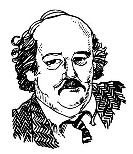(Syndicated to Kansas newspapers Feb. 15, 2016)
 We’ve been telling people that it’s a different culture inside the Statehouse than virtually anywhere else in Kansas, and it got proved again last week—over the issue of state payments to the Kansas Public Employees Retirement System.
We’ve been telling people that it’s a different culture inside the Statehouse than virtually anywhere else in Kansas, and it got proved again last week—over the issue of state payments to the Kansas Public Employees Retirement System.
Now, KPERS is a big deal, of course, with more than 200,000 active workers and retirees stretching from the state to school districts to local units of government.
Mess with KPERS, and you’re messing with a lot of voters…and their neighbors, friends and family.
So, as the likelihood that the state’s dwindling revenues tilt toward a deficit budget and the need for the state to find money to push into the State General Fund (SGF) between now and July 1 to have a balanced budget, KPERS came into view.
The concept: Allow the governor to delay the state’s last quarterly payment to the pension fund during this fiscal year which ends June 30 and to make that payment by Oct. 1—at 8% annual interest.
We’re talking about maybe $100 million that would be delayed in payment to KPERS, and nobody knows for sure, but it’s looking like the state may need at least part of that amount to end the current fiscal year with a constitutionally required ending balance of at least $1.
KPERS pensioners and contributors essentially went wild, legislators in the House and Senate say, charging lawmakers with either stealing their pension checks or aiding and abetting Gov. Sam Brownback in stealing their pension checks.
The House, in its budget bill, allowed the governor to delay that KPERS payment, pay the interest and get by the June 30 ending balance date. House members said they later heard only from angry pensioners on the delay of the payment into the retirement fund.
The Senate, in its version of the budge, nixed the KPERS borrowing-repayment with interest deal because of the letters, emails and phone calls they were getting from constituents.
Inside the Statehouse, it was dramatically different, for under-the-Dome reasons.
First, the House’s version of the bill requires the governor to repay that borrowing from KPERS, over a year, with interest, and the Senate’s version allowed the governor a year to repay KPERS with interest.
If your house or car payment depends on KPERS checks, any messing with the pension fund is worrisome…but that wasn’t going to happen either way. It’s making a late payment, and just like on your house or car, if the payment is late, you pay a penalty fee. That’s essentially what the interest payment with the KPERS borrowing is…a late payment penalty.
It’s the simplest way to go, except to sweep more money from the highway fund, but it sounded icky to pensioners who may or may not remember the issue when it comes time to vote this fall on House and Senate members.
The path now—assuming that lawmakers don’t change their minds or the House refuses to budge on the compromise House/Senate budget bill—is for the governor to make smaller cuts to virtually every other agency of the state.
Now, there’s the chance that somehow the state’s revenue soars in the next couple months, but nobody’s betting on that.
What are the options to fill a budget hole? Well, to cut spending, which is already low; to pass a budget bill from which the governor line-item vetoes some spending. Or, not likely, that the governor vetoes the budget bill and sends the Legislature back to work.
The simplest—unpleasant, yes, but simplest—solution is the KPERS payment delay.
But it means House and Senate candidates spend more time on your doorstep this summer and fall, and those palm cards get so big you have to fold them twice to get them in your pocket.
That’s the up-side?
